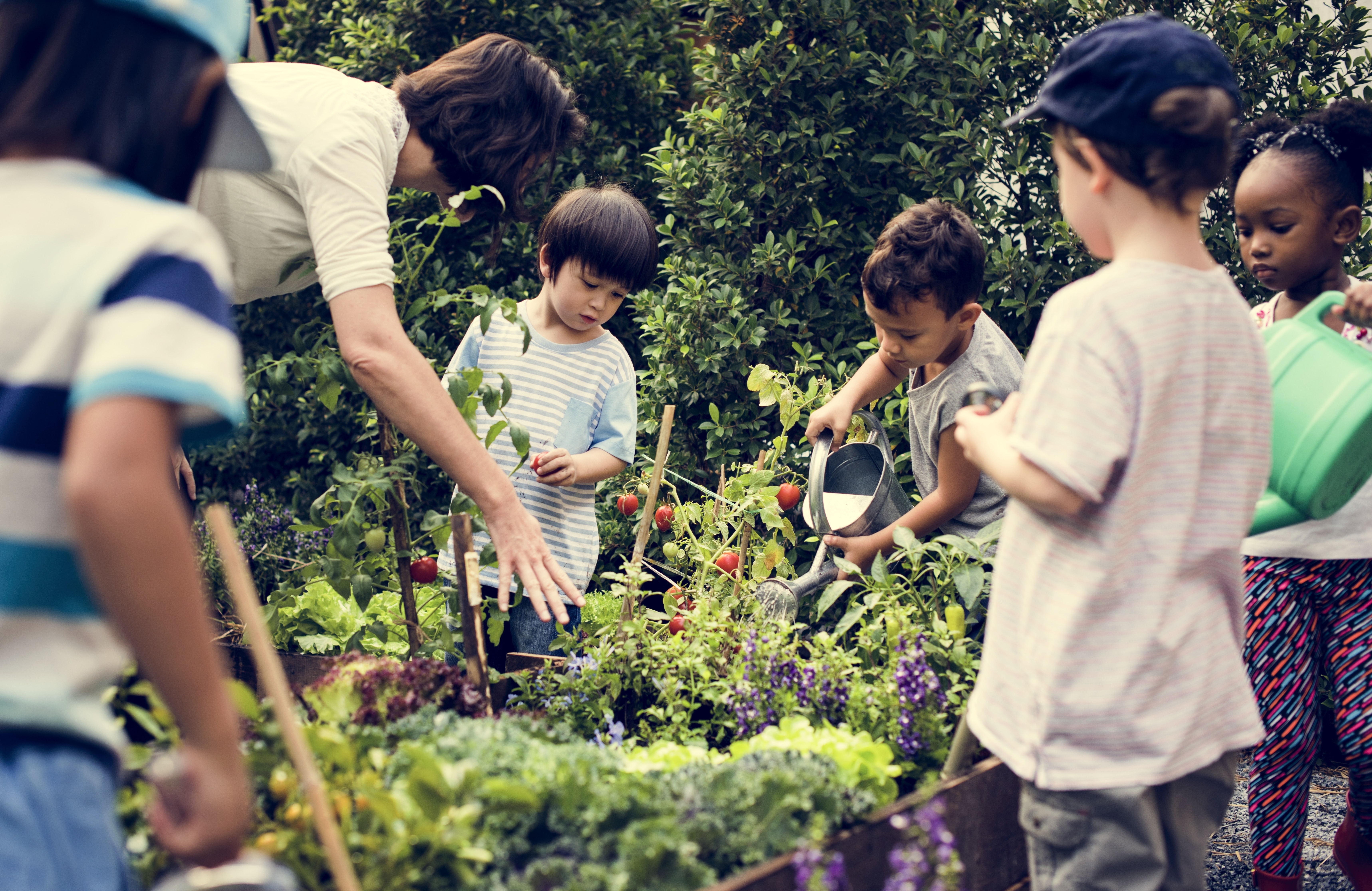National gardening week for children
Summer is almost here, and that means school holidays are on the horizon. National gardening week for children encourages them to take part in the healthy and productive outdoor activity of gardening. It is the UK’s largest celebration of gardening. It is an excellent time for your class to get involved and learn about gardening.
Whether your school already has a beautiful garden or you’re looking for ideas to get started, we’ve put together a handy blog including tips for supporting children’s well-being at school through gardening.
How to care for your school garden
A school garden is a great way to get your class involved from an early age and can teach children the importance of caring for the environment. Getting kids involved in gardening has a bigger effect on children from an early age as they go through physical, emotional and social development in their childhood.
We know that teachers are often overwhelmed with making sure children have all the experiences they need, with gardening being one of them. School gardens can be more complicated to look after than a home garden because they’re larger and have different plants growing in different places. Starting out with a small garden will be a lot easier for you and your class.
Here are five tips on how you and your class can start gardening:
Tip 1: Try to harvest as soon as possible
Start by harvesting everything in the last few days before the school holiday starts. If there isn’t going to be much activity in the school garden during the summer, it might make sense to plant a garden in early June that will be ready for harvest in autumn. Whether it’s planting seeds for flowers, vegetables or fruits, harvest early to care for your school garden.
Tip 2: Get fresh compost for your plants
Before your vegetable plants disappear over winter, give them a good feed with fresh multipurpose compost. You could turn your vegetable patch into a no-dig garden if you have enough time. You can teach your class about what you can compost too and explain the benefits for the environment. For example, food waste.

Tip 3: Planting flowers and removing weed
Learning how to plant seeds and take out weeds from your school garden is key when keeping your school garden tidy. Children can watch them grow throughout the school year and learn how to best look after them. The removal of weeds is very important to your school garden as they can kill plants if they are overgrown.
In getting this done, your school garden will flourish and look perfect for when all the flowers have grown. Make sure to talk to your SBM and keep this maintenance going throughout the holidays too.
Tip 4: Involve everyone
Create a schedule so that the garden is checked regularly. Involve the children’s parents in maintaining the garden. Aim to find members with a passion for gardening. Not only this will benefit the school garden, but it will have a therapeutic benefit. Gardening will help you and your class’s wellbeing. Taking part in growing plants & vegetables of your own and maintaining the school garden will help keep you positive. Especially knowing that teachers, parents, and students will see the garden at school. This will help ensure your school garden is clean and well maintained, ready for crops to grow in the summer.
Tip 5: Keeping plants healthy
Whether you are transplanting plants or growing your own seed, make sure to inspect the plants to prevent pests. Having an infected plant can harm the whole garden. Aside from plant infections, bugs can be eliminated using pesticides. Teach children how to inspect for insects that may harm the flowers and explain the best thing to do. They will learn a lot about keeping your school garden healthy and can take this information home with them, ready to use in their own gardens.
Managing and caring for a school garden may seem like a lot of work but building a community of support can be a great help to keep the garden in top shape. Getting your class involved will help with their well–being – as well as yours – and teach them how to look after living things. They will learn about patience and care, and they will have fun doing it too!